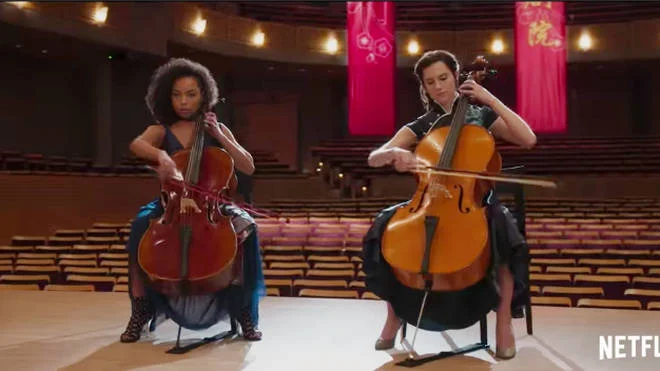I Like to Watch | The Perfection
I’m old enough to remember the rash of films that took on the coming nuclear holocaust in the 1980s. WarGames. Special Bulletin. One Night Stand. The Fourth Protocol. The most on point was the 1983 television event The Day After. It seemed you couldn’t escape the non-stop agitprop of movies decrying the insanity of the Cold War and the rank stupidity of two countries hellbent on the destruction of humanity via nuclear armageddon.
The Day After was something of its time. A television ‘event’ that aired in two parts: first an introduction of characters on the brink in Kansas, second the most realistic portrait (at the time) of the aftermath of nuclear war. I recall the borderline hysteria surrounding those two nights. Looking at it now, the thing was just a bit preachy, a tad too smug in its scolding of ideology to be a work of art to last much past the hype. I mean, it had Steve Guttenberg as a main character so how good is it really gonna be?
I believe that, when creating fiction-based mass entertainment that also addresses major sociopolitical issues, filmmakers need to pull back a step and tell a great story first with the over-the-top social commentary present but in the background. Romero’s Night of the Living Dead, for example. Yes, it’s a critique of Vietnam, of international Cold War politics, of domestic racism, but it is first and foremost about a zombie apocalypse. The best recent example I can think of is Jordon Peele’s Get Out — absolutely a commentary on black/white racism but a great horror film first. I’ll admit to avoiding it because of all of the social justice types heralding it as a castigation of white supremacy (which I already know is a bad thing and am not looking for more avenues to tell me how bad it is). When I finally got around to it, I loved it because it was a fantastic horror film.
At this time in history, much like in 1979 when women came out in force, marching in the streets, to get the Equal Rights Amendment ratified as a part of the Constitution, feminism has become genuinely angry. It’s kind of a bummer to see women today pretend that their rage is the first rage to ever come to fruition but I’m not twenty-five anymore. With the #MeToo movement, there is an electricity in the air with a demand for change and filmmakers are responding to it with equal measures of brilliance and ham-fisted polemic.
Contrary to the declaration that Captain Marvel is the first solo female superhero film, I find that Wonder Woman (2017) is a better example of the How to Advocate for Change While Still Telling a Great Story type of movie. Gal Gadot is charming and funny and still badass. Her Diana Prince and Paradise Island is still exciting and fun while demonstrating a message of empowerment for women. Brie Larsen is joyless and pissy and her Carol Danvers is just a bit of an asshole in pursuit of a feminist message. It feels like Wonder Woman was created to tell a story and Captain Marvel was created to capitalize on a movement.
Richard Shepherd’s The Perfection (Netflix) is in the great tradition of making a political point without sacrificing a great moment of cinematic storytelling. Sure, it has all the hallmarks of a #MeToo movie: Lesbian Sex! The Treatment of Misogynistic Trauma as Insanity! Violent Justice for Rape! It also tells a tale of the focus on perfection in the classical music world, the horrors of sending children off to boarding schools, the violence sometimes required to snap someone out of being brainwashed through systematic torture, and revenge. The heroines are a white woman/black woman combination of racial solidarity. It aces the Bechdel Test. It’s cringeworthy and no holds are barred in graphic depiction of amputation, hallucinations, being stranded in a foreign country while suddenly, violently ill, and the absolute terror of being forced to play the cello.
Certainly, it’s a #MeToo movie but unlike, say, Ocean’s 8, A Handmaid’s Tale, or The Miseducation of Cameron Post, the political message is stronger because the story isn’t about vengeance on all men or the horrors of being a woman amidst a patriarchy or even a fake Women Are Just as Good As Men screed. It’s about two young women, subject to the same torture, tearing at each other and finding common ground in a shared enemy (who just happens to be a fucking monster rapist dude).
Also, if you’ve ever been a part of a classical music program (as I have) you’ll understand the world these characters inhabit in the same way that you understood 2014’s Whiplash.

